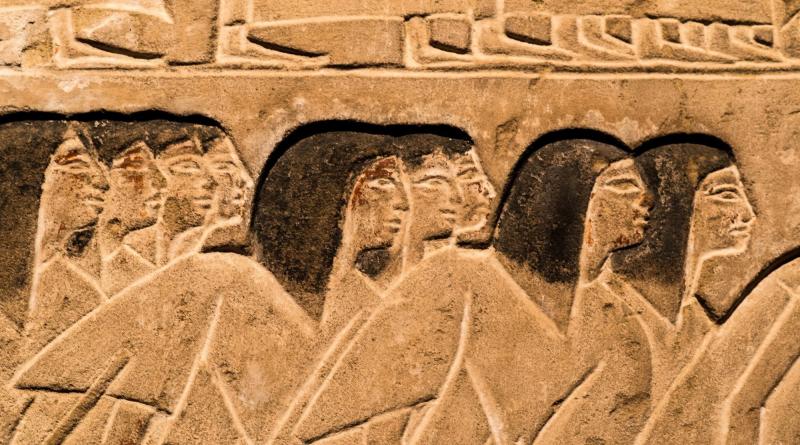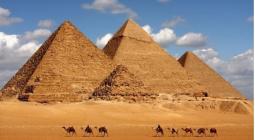Η κλιματική αλλαγή μπορεί να γονάτισε την αρχαία Αύγυπτο.

Climate Change May Have Brought Ancient Egypt to Its Knees
New analysis of pollen grains and radiocarbon dating suggests that climate change played a major role in Ancient Egypt’s downfall.
In 1500 B.C., Egypt’s New Kingdom and its neighbors were thriving. Then, just a few hundred years later, it all came crashing down. Egypt, the Hittite Empire, and Greece would eventually be surpassed by the Roman Empire. Those civilizations—and Egypt especially—would never regain their past glory.
There are a wide number of theories about what lead to the collapse of Middle Eastern civilization more than 3,000 years ago, from wars to famine and disease. Now, a new analysis of pollen grains and radiocarbon dating suggests that climate change played a major role. Pollen, which can survive in tact for millennia, is often used to reconstruct past climates. Different plants produce pollen with a unique signature, and the relative abundance of various grains can tell scientists what types of plants were flourishing when the pollen was buried. Pollen from tropical plants, for example, will appear in greater abundance in sediment cores when the climate is warm and wet.
In the new study, researchers drew sediment cores from the Sea of Galilee and the Dead Sea, analyzing the muddy stacks in 40 year increments, an extremely high temporal resolution. Here’s Isabel Kershner, reporting for the New York Times:
The laboratory work was carried out partly at Bonn University and partly in Tel Aviv. To obtain the most precise results possible, Professor Finkelstein instructed the Tel Aviv scientists to focus on the period of 3,500 B.C. to 500 B.C. and analyze samples at intervals of 40 years. The process began in 2010 and took three years.
The results showed a sharp decrease in the Late Bronze Age of Mediterranean trees like oaks, pines and carobs, and in the local cultivation of olive trees, which the experts interpret as the consequence of repeated periods of drought.
The drying of the Middle East in 1250 to 1100 B.C. correlates strongly with the collapse of those civilizations. The string of droughts eventually broke, but it was too late. The Egyptians and the Hittites couldn’t recover, and upstarts from more forgiving climes like the Romans rose to power.
22 October 2013
Nova




